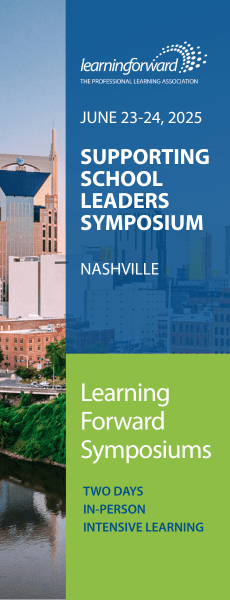“When students cannot learn the way we teach them, we must teach them the way they learn.” — Howard Gardner
Teachers often can fall into the trap of teaching con- tent instead of children. Many of us have the attitude that “we will put the information out there, and if they don’t get it, it’s on them.”
Several years ago, I had a student named Jeremy in 12th-grade English, in which the curriculum centered on writing and British literature. I struggled to find ways to make the content interesting — I used lots of cooperative learning, visuals, and let the students have lots of choices. Jeremy didn’t care. Though Jeremy was classified as gifted, he slept in class every day. I began to get really frustrated because I couldn’t pique Jeremy’s interest. I even began to resent him for not liking my class. Everyone else liked my class — what was wrong with Jeremy?
High school teachers sometimes develop a hands-off attitude. I thought, “OK, Jeremy, if you want to fail my class, fine. I’ve tried everything.” As time went on, I ignored Jeremy. I didn’t ask him questions, or even make eye contact with him. I didn’t expect anything from him, except snoring and an occasional puddle of drool left on his desk.
By accident, I found that Jeremy was capable of much more. One day, I went to the broadcast- ing classroom to edit film of Homecoming Week for a montage. The broadcasting teacher had helped me learn how to edit video and let me use her machine in the studio whenever I wanted. On this day, several students were working on an assignment. I was not paying much attention, but then I heard a voice I recognized. I looked up and saw Jeremy, not only awake, but teaching his classmates.
He was animatedly explaining how to film a fight sequence. My first thought was that Jeremy must have a twin! I sat staring with my mouth agape, struggling to reconcile the Jeremy I knew with this stranger. Suddenly he realized I was sitting in the corner by the editing machine.
Our eyes met. “Mrs. Duff?”
“Jeremy?” I said.
He asked with surprise, “You know how to edit video?”
I almost replied, “You’re walking upright?” but caught myself. “Yes, Mrs. Bernard taught me. I had no idea you were a videographer!” He beamed with pride and explained the project his group was working on. It was clear he had earned his classmates’ respect. And it was suddenly clear to me that I had not really made an effort to know Jeremy at all.
What happened next was amazing. In class, Jeremy not only stayed awake, he completed his work and participated in discussions. He volunteered to film class projects and completed one himself. He passed my class with a B.
What happened? When Jeremy encountered me out- side English class, it changed his perspective of me. He realized I wasn’t just some weird lady trying to force him to learn British poetry. Equally important, my perspective about him was altered. He wasn’t just the kid who slept in my class.
I’m not proud that I didn’t make a better effort to know Jeremy before the encounter in the broadcast room. I told myself I had tried everything, but I had not stepped outside of my little English world at all.
I learned from that fortunate accident. Now I make a great effort to cause more of these “accidents” to happen. I try harder to discover my students’ many facets. And I am happy to report that Jeremy now works for a television station.
I know now that we must be willing to entertain the idea that not all students will learn the same way or at the same rate, nor will every student respond every time. We must be willing to keep trying to reach every student. In the end, it’s all about attitude. It may be a teaching strategy, a timely smile, or a fortunate accident. But if we’re deter- mined to reach our kids, we’ll eventually find a way.
Recent Issues
LEARNING DESIGNS
February 2025
How we learn influences what we learn. This issue shares essential...
BUILDING BRIDGES
December 2024
Students benefit when educators bridge the continuum of professional...
CURRICULUM-BASED PROFESSIONAL LEARNING
October 2024
High-quality curriculum requires skilled educators to put it into...
LEARNING TO PIVOT
August 2024
Sometimes new information and situations call for major change. This issue...









